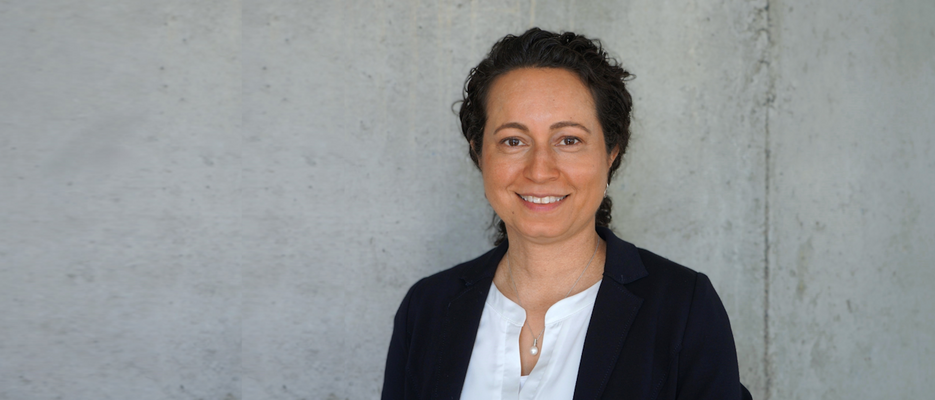Cynthia Sharma Becomes New Member of the Leopoldina
05/20/2025The German National Academy of Sciences Leopoldina has accepted Würzburg-based infection biologist Cynthia Sharma into its Microbiology and Immunology Section.

The National Academy of Sciences Leopoldina is one of the oldest scientific academies in the world and, more than 370 years after its founding in 1652, continues to stand for scientific excellence and interdisciplinary exchange.
Nomination and election as a member is both a recognition of researchers' scientific achievements and an opportunity to actively shape the research landscape and establish collaborations, both nationally and internationally. Leopoldina members also have the task of developing socially relevant topics for the future, providing science-based advice to politicians and the public on current and socially relevant issues, and representing German science in committees in which the national academies are active.
Cynthia Sharma, an infection researcher and RNA biologist from Würzburg and Chair of Molecular Infection Biology II at the University of Würzburg (JMU), recently became a member of the Leopoldina. In April 2025, she was officially accepted into the ‘Microbiology and Immunology’ section of the National Academy of Sciences.
Research on the Regulation of Gene Expression in Bacteria
“Being accepted into the Leopoldina is a great honour for me”, says Sharma. “I am very pleased to be able to contribute to this circle of outstanding colleagues in the future.”
In 2010, Sharma was appointed as an independent junior research group leader at the Centre for Infection Research (ZINF) at the University of Würzburg and has been the spokesperson for the ZINF since 2018. Her research focuses on bacterial pathogens and their adaptation to hosts and different environments.
She is particularly interested in the regulation of gene expression in bacteria – in other words, how bacteria control which genes are activated or deactivated at what point in time in order to camouflage themselves, attack or reproduce. Sharma focuses in particular on small regulatory RNA molecules and on proteins that bind RNA and play an important role in cell physiology. Her research group is also investigating the mechanisms and functions of bacterial CRISPR-Cas immune systems.
Based on these findings in basic research on bacterial pathogens, Sharma and her colleague at the Helmholtz Institute for RNA-based Infection Research, Chase Beisel, developed a diagnostic platform for distinguishing between different respiratory viruses and virus variants based on CRISPR – a molecular ‘toolbox’ for the targeted editing of genetic material and other biomolecules.
Cynthia Sharma has received numerous awards for her research, including the main prize of the German Society for Hygiene and Microbiology in 2023, a Momentum Grant from the Volkswagen Foundation in 2023, a Consolidator Grant from the European Research Council (ERC), the Pettenkofer Prize in 2022 and the Heinz Maier-Liebnitz Prize from the German Research Foundation (DFG) in 2015. From 2012 to 2017, she was a member of the Young Academy of the Bavarian Academy of Sciences.
With her admission to the Leopoldina, Cynthia Sharma joins a group of renowned scientists from the University of Würzburg who are also members of the National Academy of Sciences. These include chemist Claudia Höbartner, structural biologist Caroline Kisker, and infection biologist Jörg Vogel, who are working with Sharma on the NUCLEATE cluster of excellence application for nucleic acid research, which was submitted by the University of Würzburg together with the two Munich universities LMU and TUM. A funding decision is expected this week.
Contact
Prof. Dr. Cynthia Sharma, Chair of Molecular Infection Biology II, T +49 931 31-82560, cynthia.sharma@uni-wuerzburg.de






